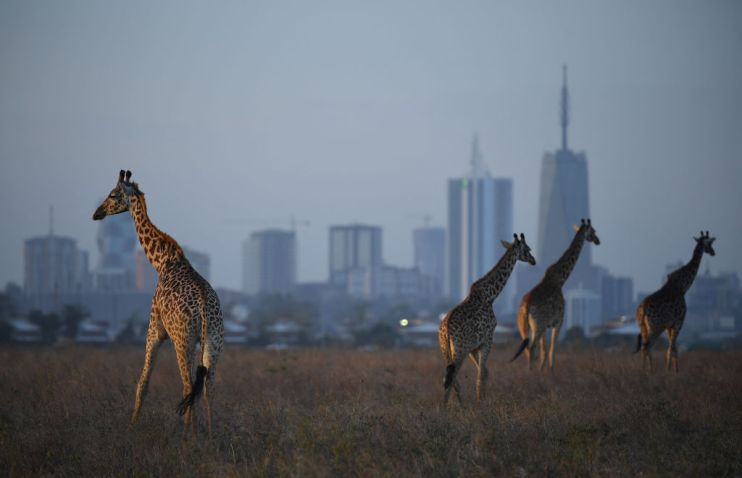UK-Kenya trade deal ratified overnight despite ongoing legal challenge

In a surprise twist, Kenyan MPs ratified late on Tuesday evening the Kenya-UK trade agreement, paving the way for a duty-free trade economic framework between the UK and the East African country. The outcome of the vote was only made public yesterday.
Adan Haji, chairman of the Kenyan parliament’s trade committee, reputedly managed to persuade a majority of Kenyan MPs not to block the trade pact, despite fierce opposition from a range of influential parliamentarians in recent weeks.
A press officer at the UK Department for International Trade confirmed to City A.M. that the trade deal had been ratified and the UK High Commissioner to Kenya, Jane Marriott, said last night she was “pleased.”
UK’s international trade minister Ranil Jayawardena told City A.M. this afternoon: “It’s brilliant news that Kenya’s Parliament has agreed our trade deal. This will bring benefits for British shoppers and Kenyan exporters, boosting businesses on both sides.
“Trade between our two countries is already worth £1.4 billion a year, and there is so much more we can do together as we build back better,” he added.
Completion of the ratification process in Nairobi comes as somewhat of a surprise as, only days ago, multiple influential Kenyan lawmakers came out against the trade deal, saying the agreement was ‘illegal’ under Kenyan law.
Moreover, a collective of farmers is still fighting the trade deal in court, demanding that quotas and tariffs are not lifted for British exporters into Kenya as it would lead to unfair competition and market disruption.
Nevertheless, in an abrupt twist not too uncommon in Kenyan politics, the UK-Kenyan Economic Partnership Agreement (EPA) was rubberstamped by lawmakers in a late-night session that was closed to the public and press.
As a result, ratification on both sides of the Sahara has now been completed, following approval by the House of Lords in London earlier this month.
The EPA, signed in London in December of last year, provides Kenyan businesses duty-free access to the UK market, while Kenya will start phasing out duty and quota barriers on a set number of UK products 12 years after the EPA has come into force.
Also, tariffs on some UK goods would be reduced seven years after the deal has been ratified.
Ultimately, the deal will be extended to Burundi, Uganda, Rwanda, South Sudan and Tanzania, as City A.M. reported earlier this month.
Legal challenge
Despite the ratification process having been completed by both parties, the agreement still faces one obstacle, as a group of farmers and lobby group Econews launched a petition at the Nairobi High Court last week, which legal observers have said has the potential to drag on for months.
Lawyer Hanningtone Amol, managing partner at ALP Kenya, who filed the matter on behalf of the farmers, said a hearing took place yesterday.
“The case now turns away from an injunction to quashing the EPA ratification. This is what we will be prosecuting in court going forward,” Amol told City A.M.
However, “as there is no injunction against the operationalization of EPA, the government of Kenya is at this stage free to proceed until such a time that the court will make a determination on [the EPA’s] constitutionality,” he said.
At the heart of their case is the argument that Kenya’s government did not follow the country’s constitution.
The farmers’ right to access to information was not granted as “they do not have the luxury of English knowledge and do not [have] access to the internet. They ought to have been availed simplified versions of the document in local languages and guided on what it means,” Amol argued.
Moreover, he claims public participation was inadequate on a matter that will affect Kenya economically, as the government of Kenya did not conduct an economic and regulatory impact assessment of the EPA.
Amol added that the court set a timetable for a fast-tracked hearing of the matter yesterday, with the next session scheduled for 30 June.
UK-Kenya trade
The UK is a major market for British and Kenyan exporters of tea, coffee, flowers and fresh vegetables.
Both the UK and Kenyan governments stressed in December that the trade deal provides Kenyan businesses duty-free access to the UK market, aimed at supporting jobs and economic development in Kenya, as well as to avoid disruption to UK businesses as they maintain tariff-free supply routes for Kenya’s high-quality flowers.
According to UK government data, the biggest import to the UK from Kenya in 2019 were, coffee and spices, with a market value of around £121m, vegetables at £79m as well as live trees and plants, mostly flowers, for around £54m.
The UK market accounts for 43 per cent of total exports of vegetables from Kenya as well as at least 9 per cent of its cut flowers. In 2019, UK-Kenya trade was worth an estimated £1.4bn.